Moving to New Zealand: Ultimate Guide
Did you know that more than 20 per cent of the population of New Zealand was born abroad? Amongst the native New Zealanders (or Kiwis, as the locals are fondly called), you will find strong international communities.
For decades, ex-pats from across Asia have been moving to New Zealand and, today, you will find that almost one-third of all Auckland residents identify as having Asian ethnicity. Throughout the country, you will find Chinese, Indian, Filipino, and Australian ex-pats living and working.
With some of the most gorgeous landscapes on the planet, beautiful weather, and laid back culture, it is easy to see why people from around the globe are flocking to New Zealand. But, what is life really like down under? From healthcare to taxes to the famously high cost of living, let’s look at what it is truly like to live in New Zealand.
Living / Lifestyle
What Is It Like to Live in New Zealand?
Expats in New Zealand often focus their praise on the same key local offerings that make their newly adopted homeland different from anywhere else on earth. First of all, whether you are a tourist or migrant, you will instantly fall in love with the incredible natural beauty of the country. From the urban harbour of Auckland to the snow-capped peaks of Queenstown, it is easy to see why New Zealanders say they’ve got the most beautiful country in the world.
Beyond just being a nice place for a holiday, New Zealand has a high standard of living. The education system and quality of healthcare are truly second to none.
It’s not all roses, though. Life in New Zealand, particularly in areas like Auckland, is infamously expensive. The bulk of products, from vegetables to iPhones, are imported and come with a hefty price tag. There are no low-cost airlines and the housing market is extraordinarily competitive.
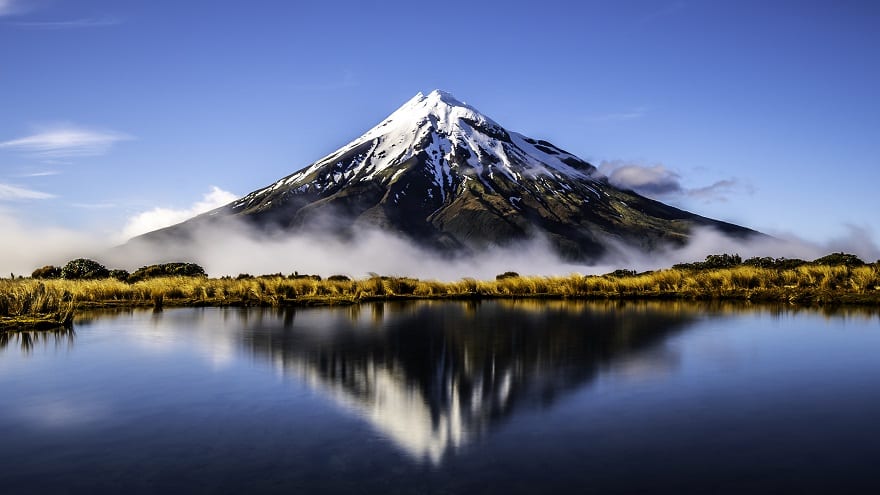
When you are moving to New Zealand from abroad, it is essential to fully consider the cost of living and be sure that your salary makes it worthwhile. Once you are earning a wage that keeps up with the local cost, life can be incredible here.
Being in a somewhat isolated area, the country has developed a unique culture and in-ward focus that is less common in the modern globalised era. This one-of-a-kind lifestyle is one of the reasons why expats in New Zealand are happier than almost any other country on earth.
From political stability to a general feeling of wellbeing, foreigners in New Zealand love their lives.
The HSBC expat guides and surveys are some of the most extensive sources of info you will find on life abroad. To get a true sense of life on the ground, check out the complete report on New Zealand’s expat experience.
Cost of Living
What Is the Cost of Living in New Zealand?
As a remote island, the majority of things you use in daily life will be exported from aboard. The import taxes are high and many sectors are simply uncompetitive due to the small market. For New Zealanders, this means high prices.
On average, a family of four spends around 6,000 to 8,000 New Zealand dollars per month, or around 3,600 to 4,800 US dollars. In Auckland, the average family of four spends 5,220 New Zealand dollars per month, before housing costs.
But don’t let the cost of living put you off too quickly. Your monthly costs will vary dramatically from area to area. Spend time researching and carefully do the maths to see how wages vs costs compared in different areas across the country.
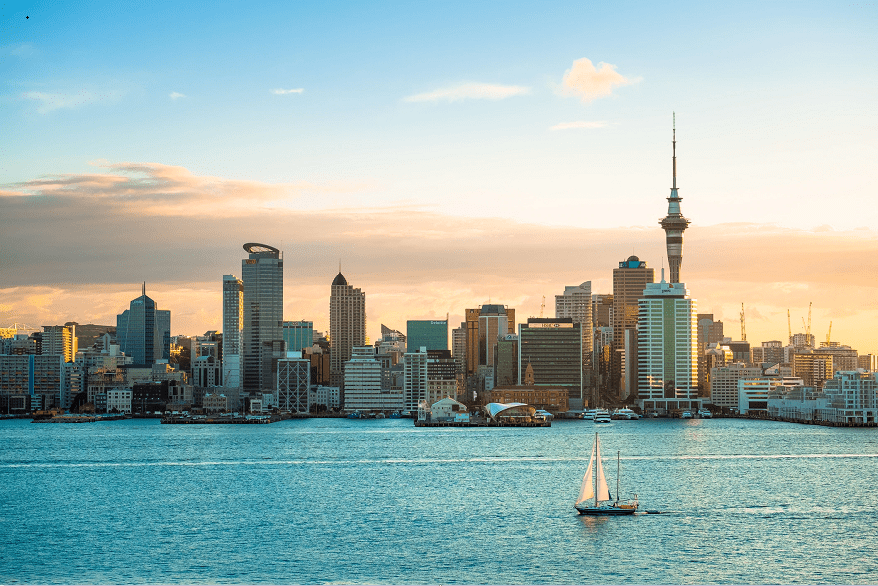
While it is a small country, the cost of living does indeed vary significantly depending on the location. You will find skyrocketing costs in the core urban areas of Auckland, Wellington, and Christchurch. Housing options are limited so the most popular spots tend to be costly and competitive.
If you are looking to a less expensive option, smaller cities like Dunedin and Hamilton are well worth considering. While many ex-pats love the international appeal of Auckland, Wellington, and Christchurch, you can find great career opportunities in the second-tier cities. If you have a range of options in the local job market, spend the time looking around to see what makes the most sense for you.
As you plan your move to New Zealand, keep in mind that certain aspects of life are highly affordable. In fact, things like education and healthcare that can rake up major costs elsewhere, are free down under.
How Much are Basic Goods and Services in New Zealand?
A meal at the standard restaurant is likely to cost roughly NZD 18-20 per person with a beer priced around NZD 8 and soft drinks around NZD 3.20 per can. A reasonable bottle of wine costs approximately NZD 12-14 and a coffee typically sets you back around NZD 4.50
At the local supermarkets a loaf of bread is priced around NZD 2.80, a litre of milk approximately NZD 2.70 and a dozen eggs roughly NZD 5.70.
Public transport is good and reasonably cheap with monthly passes at around NZD 140. Taxis start around is NZD 3 and then around NZD 2.50 per kilometer thereafter. Petrol is around NZD 1.90 per litre.
Accommodation is relatively high. A typical 1-2 bedroom apartment in the city would be approximately NZD 1,500-1,800. Outside of the city rent would reduce to around NZD1,250-1,500
Basic utilities for an average two-bedroom apartment will be around NZD 200-220 per month. Prepaid mobile phone charges are approximately NZD 0.60 per minutes and broadband Internet us roughly NZD 90 per month.
For more information and further prices in France check out Numbeo
Moving to New Zealand
What Moving Documents are Needed For Moving to New Zealand?
- Copy of passport
- Original bill of lading (OBL) / air waybill (AWB)
- Treatment / cleaning certificates for the shipment goods
- CITES permit, if applicable
- Detailed inventory valued and in English
- Copy of prescriptions for prescribed drugs
- Ministry for Primary Industries (MPI) supplementary declaration form, if applicable
- Unaccompanied personal baggage declaration
- List of wine collections with evidence showing the wine has been collected over a period of time and is of various types
- Receipts for new items
- Residence visa / residence permit, if applicable
- Work visa / work permit (minimum of 12 months / skilled migrant / long-term business visa or permit)
- Visitor’s visa / permit issued for a minimum of 3 years
- Trade single-window – client registration application, if applicable
- Copy of passport
- Registration papers (prove length of ownership)
- Car condition report
- Sales invoice
- Statement of compliance
- Owner of the goods code form
- Supplier code form
- Deed of undertaking
- Vaccination record
- Veterinary health certificate
- Import permit (if necessary)
For more information on restricted and prohibited items and a more in-depth look at documentation please check the International Association of Movers.
Legal / Visas
What Visa Do I Need to Live in New Zealand?
New Zealand is generally an immigration-friendly country. The population is heavily-compromised of migrants, ex-pats, and refugees. When you are moving to New Zealand, you will be able to choose amongst dozens of different visa options. You can read all of the details of each on the government website.
Though you can choose from numerous New Zealand visas, the majority of expats and their families arrive with a couple of common NZ works visas so let’s take a closer look at those.
How Can I Get a Talent Work Visa in New Zealand?
Many ex-pats arrive on the work visa officially called the Talent (Accredited Employer) Work Visa. This is a common New Zealand visa that you can get when a local employer offers you a fulltime job. This visa offers a strong prospect for living in New Zealand long-term.
Unlike many countries where you can be dependent on your employer long term for immigration, New Zealand offers permanent residency fairly quickly. After having a Talent (Accredited Employer) Work Visa for two years, you are eligible to apply for permanent resident in New Zealand.
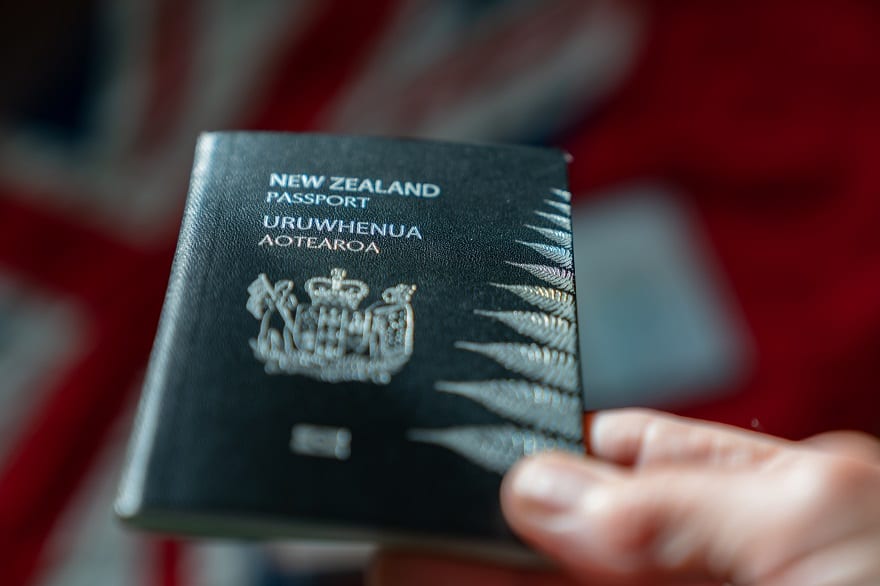
How Can I Get a Skilled Migrant Category Resident Visa in NZ?
Like Australia, the government of New Zealand offers residency visas on a points-based system. If you meet the following requirement, you may be eligible for a Skilled Migrant visa. Keep reading below for the initial set of criteria.
Prerequisites for Skilled Migrant Visa:
- Professional level of English
- In generally good health
- Of good character (no police record)
- Younger than 56 years of age
- Registered with the relevant professional registration authority of your country (if available for your career sector)
If you meet the basic requirements, you will be able to move on to send an Expression of Interest (EOI) to the government. You can read more on the official EOI site. Be sure to check out the Points Indicator for Skilled Migrant Expression of Interest website as well to get a sense of how the point system works.
How Can I Get a Long Term Skill Shortage List Work Visa in NZ?
Do you have a skill set that is in high demand? From chefs to electricians, New Zealand is in urgent need of a range of specialised workers. Depending on your field of work, you might be able to get a Skill Shortage Visa to work in New Zealand. Read through the full list of in-demand job in this helpful PDF.
Money & Taxes
How Do I Open a Bank Account in New Zealand?
When it comes to non-resident bank accounts, it is, in fact, easier to open a bank account before you arrive in the country. When you open a bank account from abroad, you will simply submit your proof of identification, then you will have a local bank account number and an account in New Zealand dollars where you can deposit money (do be aware that you can’t take money out of the account until you arrive in the country and complete the setup process).
After moving to New Zealand, you can simply go into any branch to provide proof of local address. When you open the account, you will need to visit a branch in person within 12 months.
If you already have your visa and are in the country, you can open an account relatively easily. Just be aware that you need to already have most of your local documents in place so this will be one of your final steps. Here is what the average New Zealand bank wool require:
- Your passport
- Your NZ visa
- Proof of address, like a utility bill, bank statement, or employment contract
- Your Inland Revenue Number (IRD)
- Minimum balance p[ayment
There are banks that will open an account for you without an IRD, but there will be a high taxation rate on any interest rate. It is currently a rate of 33 per cent so you won’t want to create an investment account before getting your tax ID set up.

How Do Taxes Work in New Zealand?
When you live in New Zealand, you will pay two different types of tax: income tax along with goods and services tax.
The income tax is called Pay-As-You-Earn or PAYE. Your personal income tax rates increase as your income increases. For income of $14,000 and under, you will only pay 10.5% of your wage in taxes (though there are exemptions that lower this rate for low-income families).
For income over $70,000, you can expect to pay 33 per cent. If you start your own business, you will be looking at a flat corporate tax rate of 25 per cent.
The goods and services tax, or GST as it is typically called, is charged at a flat-rate tax of 15% per cent. For the vast majority of goods that you buy, you will pay this GST rate.
Climate & Weather
What’s the Weather like In the New Zealand?
Most areas are part of the official maritime climate classification and enjoy four district seasons. From May to December, you will often see set weather. In July, you will experience the coldest month of the year, with temps around 14.5 degrees C. January often sees temperatures around 24 degrees C.
Peak travel times tend to be in November and again around April when you will find some of the best weather of the year.

Buying & Renting a Home
How Does Renting Work in New Zealand?
One of the first things that you will notice as you start to browse rental properties is that rent is charged every week (or occasionally every two weeks). In order to move into a rental home, you will typically pay the equivalent of one month in rent to cover any possible damages or debts.
This type of deposit is called a bond and it is held by the government’s Tenancy Services until you leave the property. In total, you can expect to pay about four weeks as a bond, then an additional two weeks must be paid in advance. Individual landlords may vary, however, so always ask in advance to know what to expect.
Typically the cost of electricity, gas, internet, and the phone will be up to you. Sometimes the owner pays the water charge, sometimes you do. Again, this is a detail that you will want to confirm. As you are planning your move, you might also look at signing up for contents insurance that offers personal liability to protect your belongings in the event of a fire or a break-in.
The NZ government has a helpful website from their Tenant Services program that helps renters with anything and everything. Bookmark the page so you can have a resource always on hand.
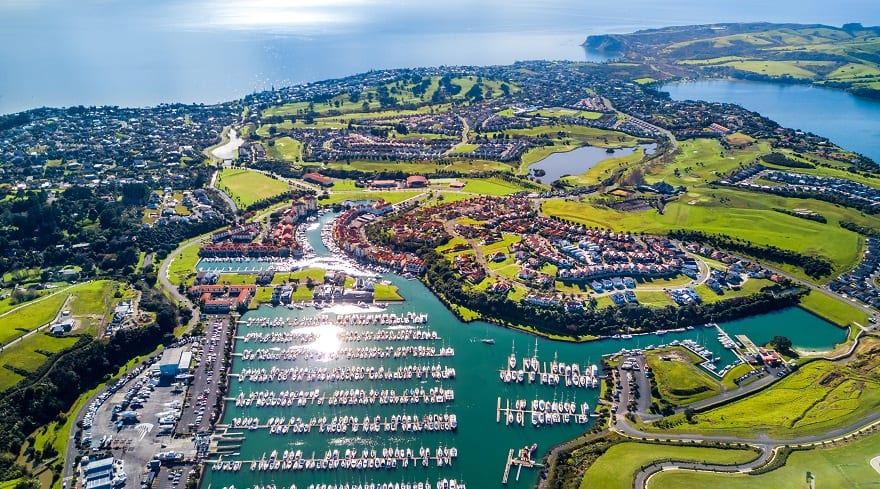
Can I Buy Property as a Foreigner?
The process of buying a property in New Zealand as a foreigner is simple and safe. There are no restrictions on foreigners owning property and you can often buy a house in as little as one month from the moment you view it to the day you take the keys.
The average house in the country costs 560,000 NZD (380,000 USD) and just over 60 per cent of the population own their home.
Healthcare
How Does Healthcare in New Zealand Work?
The healthcare system works with a hybrid of free services and subsidised services. When you have your residency from NZ, you will be to avail of a range of services. If you happen to be from a country with a reciprocal agreement, you can access free and partly-funded healthcare at any time after your arrival.
For other citizens, you may need to wait until you have your healthcare set up. Have a look at this guide to healthcare coverage for migrants, ex-pats, refugees, and international students for a complete picture.
Going to the Doctor in New Zealand
After moving to New Zealand, one of the first things that you will want to do is get set up with a GP by enrolling in a local clinic.
There are a few different benefits to enrolling with one clinic. First of all, you will always be able to go to the same doctor or practice nurse and they will have all of your records on hand. You will also find that your charges are lower as well. In fact, once you register, you will pay more if you need to visit a different clinic
GPs typically operate from Monday to Friday with standard office hours from 8 am to 5 pm. If you want to visit the doctor outside of these hours or pick up a prescription, you will pay a surcharge and find limited availability.
Getting Free Medical Advice
Another helpful offering of the NZ government is its medical advice helpline. This is a free telephone advice line where you can talk to a doctor anytime. If you aren’t sure if you need to visit a GP or just aren’t sure where to go in your area, they can provide you with advice about your unique case.
If you have family members with limited English or you simply aren’t feeling sure how to describe your symptoms in English, you can always ask for an interpreter. Their availability varies, of course, but it is common if you are from India, China, or the Philippines, you will typically have a relatively easy time finding multilingual support options.
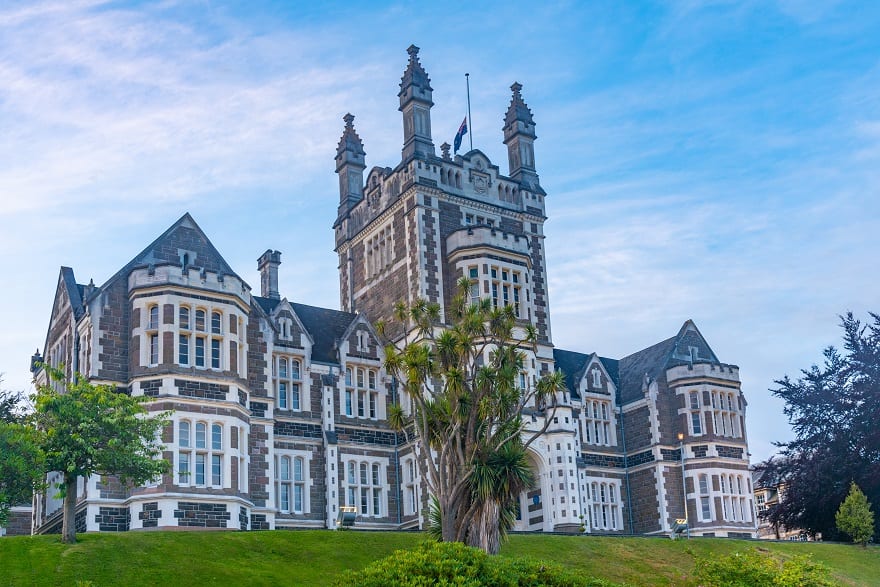
Education
How Does Education in New Zealand Work?
When you are a citizen or a permanent resident, schooling for your kids is free from age five to 19. It is compulsory from age 6 to 16, though common before and after those ages. While Early Childhood Education (ECE) isn’t required almost 97 per cent of New Zealander parents do send their kids to school before age six.
The local education system is broken down into three levels:
Most kids in New Zealand attend a state school. This is funded by the government and uses a non-religious national curriculum. In addition to this, you will also find State integrated schools. These often have a particular philosophy or religion but use largely the same standard curriculum. They are only partially funded by the government, meaning that you will have to pay some fees.
Finally, you can opt for a private school. These are not tied to the national curriculum in any way and require the parents to pay for the bulk of the cost.
Final Thoughts
If you are anything like most local ex-pats, moving to New Zealand could be the best decision you ever make. With lovely weather, welcoming locals, and great career opportunities, it’s easy to see why so many foreigners call this gorgeous country home.
Moving to a new country can be a little disconcerting, and left unchecked these feelings can develop into anxiety and stress. Moving to New Zealand, as we have seen, brings with it both exciting opportunities with some potential challenges. However, embracing the changes and adopting a proactive approach through the advice, tips and links we have provided sets you firmly on course to a successful relocation to New Zealand.
Why not get things moving by completing our simple form, enabling international movers to start work on your moving quotation, today!








